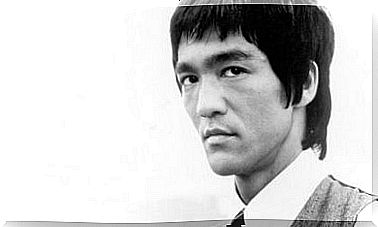Passive Violence: Deep Wounds That Seem Superficial

Passive violence seems almost paradoxical. Violence makes us think ‘actively’, so basically it would be two incompatible ideas. But in everyday life we do come across people who, without raising their voices or using hurtful words, make us feel really attacked. The victim of passive violence feels a vague, elusive kind of pain.
Passive violence or passive aggressive attitudes are the result of an inability to resolve conflicts with authority. There is a feeling of helplessness or defenselessness that turns into resignation. But that resignation is full of anger and frustration, which will manifest itself in one way or another.
Passive violence in everyday situations
The most obvious examples of passive violence are teenagers. For example, when their father or mother tells them to clean up their room and they say they will. But in the end just let it go.

It is also common in small children. They’ll have a tantrum and if you don’t give in, they’ll throw themselves around to hurt themselves. Or later they ‘accidentally’ break an expensive vase.
With adults, of course, there are also thousands of examples of passive violence. When you talk to someone and they pretend not to hear you. Or when someone gives you scathing criticism disguised as advice or suggestion. Or when someone presents you with a dilemma and kindly asks you to decide. And you probably know more examples!
Passive Violence and Authority
In general, passive violence grows in power relations situations. It is precisely this power that prevents or limits the expression of aggressive feelings. That’s why they turn to fake reverence, which then translates into passive violence.

Authoritarian figures are also often the victims of passive violence. Parents, of course, but also bosses, teachers, doctors, etc. Sometimes they do not formally hold a position of power, but they do assume that role in relation to someone else. Like when one person in a relationship has more control or influence.
These power figures may also cause instances of passive violence. They know that those who are hierarchically below them do not have complete freedom to react to their behavior. Like when the boss asks you to work an extra hour every day to help the rest. Or when your partner says it’s better if he helps because you couldn’t do it yourself.
Passive violence is practiced by generating guilt, denying, humiliating or using the other, indirectly or indirectly. Sometimes it is very difficult to detect because it is usually shrouded in soft speech and good manners. It is almost never conscious.
The effect of passive violence in social circles
Many passive violence behaviors are transmitted and nurtured in our society. Like when you walk down the street and a homeless person asks you for money. Sometimes you don’t want or can’t help. And then the homeless person says ‘God bless you’. Here he may not really want God to bless you, but quite the opposite. And that’s the message he gives you between the lines.
Explicit or passive violent behaviors generate a response in the same way. The stressed boss only forces a few of her employees to work longer hours. An authoritarian teacher causes bad behavior, whether overt or not. The controlling mother may be raising difficult children. A politician who buys votes gives people an excuse not to pay their taxes.

The most damaging thing about passive violence is that by not being explicit, someone causes confusion and is unclear. When you confront your teen that he hasn’t obeyed, he’ll say, “I already told you I’m going to do it!” If you tell your boss that his evaluation is unfair, he will probably lecture you on discipline and competence. And your partner may feel victimized or genuinely surprised when you tell them that they treat you like you’re stupid.
We must learn to put an end to these manipulative actions. We must deal with conflict so that we do not create or feed this type of violence. That doesn’t mean you should just say whatever comes to mind without filtering it. It is simply about improving your ability to communicate in a clear and calm manner.









